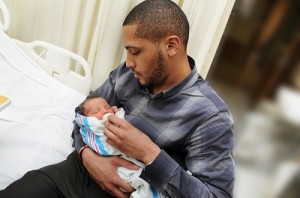Circumcision: Is it Necessary?
By Dr. Joe Molitierno, Pediatric Urology Associates

In nearly a decade of practice as a pediatric urologist, I find that nothing generates more questions and anxiety for new parents like the subject of newborn circumcision. Parents are overwhelmed with the opinions of family members and friends who are more than happy to relate their experiences and impart their beliefs. Finding trustworthy and accurate information regarding the risks and benefits of circumcision, the procedure(s), and/or the potential complications is exceedingly difficult. I hope this article will shed some light on the subject.
Is circumcision medically recommended?
This is a difficult question to answer. Rarely is circumcision performed for a medical indication. The risk of urinary tract infection (UTI) is so low in baby boys that more than 100 circumcisions would have to be performed in order to prevent a single UTI. And the only true medical indications in infants include a history of UTI, urinary blockage or urinary reflux.
However, the American Academy of Pediatrics released the following policy statement in 2012:
“The health benefits of newborn male circumcision outweigh the risks and that the procedure’s benefits justify access to this procedure for families who choose it. Although health benefits are not great enough to recommend routine circumcision for all male newborns, the benefits of circumcision are sufficient to justify access to this procedure for families choosing it.”
While this may seem a little confusing, the opinion is that there are enough medical benefits to justify the decision for circumcision. However, if you don’t wish to circumcise your baby boy, this certainly doesn’t make you a bad parent.
Why do parents circumcise their children?
A variety of factors go into the decision to circumcise a baby boy. Often it’s as simple as wanting to have the baby look like his dad or his brothers. Sometimes it’s for religious reasons, as most Jewish and Muslim families have the procedure performed. Some cultures practice circumcision as a rite of passage to manhood. Many families who have immigrated to the U.S. have a circumcision performed to become more “American” and fully assimilate into their new culture. And some families note cleanliness and appearance as the reasons.
When should it be done? Who should perform it?
Infant circumcisions are often performed in the newborn nursery for the convenience of the families. As long as the baby is healthy and eating well, the procedure can be safely done before the family is sent home. However, if the child is not feeding well, is on the small side (weighing less than five pounds) or has any other medical issue such as low platelets or sepsis that might complicate the circumcision, it can be delayed for up to two months and still be safely performed in an outpatient setting.
In the hospital setting, circumcisions are performed by a variety of physicians. Charlotte is a unique city because a pediatric urologist can be requested to perform a newborn circumcision at any of the metropolitan hospitals. At the same time, pediatric surgeons, obstetricians and pediatricians routinely perform newborn circumcisions. Experience levels can vary, so ask the physician about their experience and comfort level with the procedure. Outside of the hospital, Jewish circumcision ceremonies are often performed by mohels, many of whom are also physicians.
In summary, circumcisions have been performed for centuries, and although they are not medically necessary in most cases, there is enough evidence to justify the practice of newborn circumcision. The procedure can be performed safely in the newborn nursery, but can be delayed up to two months and still be performed in an outpatient setting using the same methods. Most importantly, be assured that all of the methods used for newborn circumcision are equally safe when an experienced physician or trained provider performs the procedure.
Joe Molitierno, MD is a board-certified Pediatric Urologist who trained at both UNC Chapel Hill and Emory Schools of Medicine. He has been practicing in the Charlotte area for over nine years. He is a partner with Pediatric Urology Associates, PA and is the director of the Nocturnal Enuresis and Wetting Treatment (NEWT) center, the Carolinas first pediatric voiding dysfunction center.
This blog was produced in partnership with Charlotte Parent. Click here for the original post and other parenting resources.













